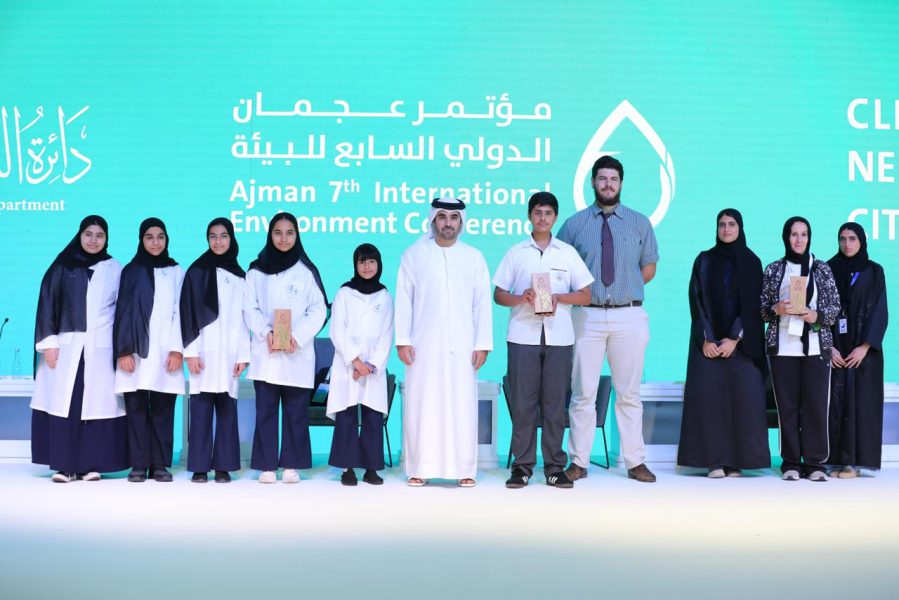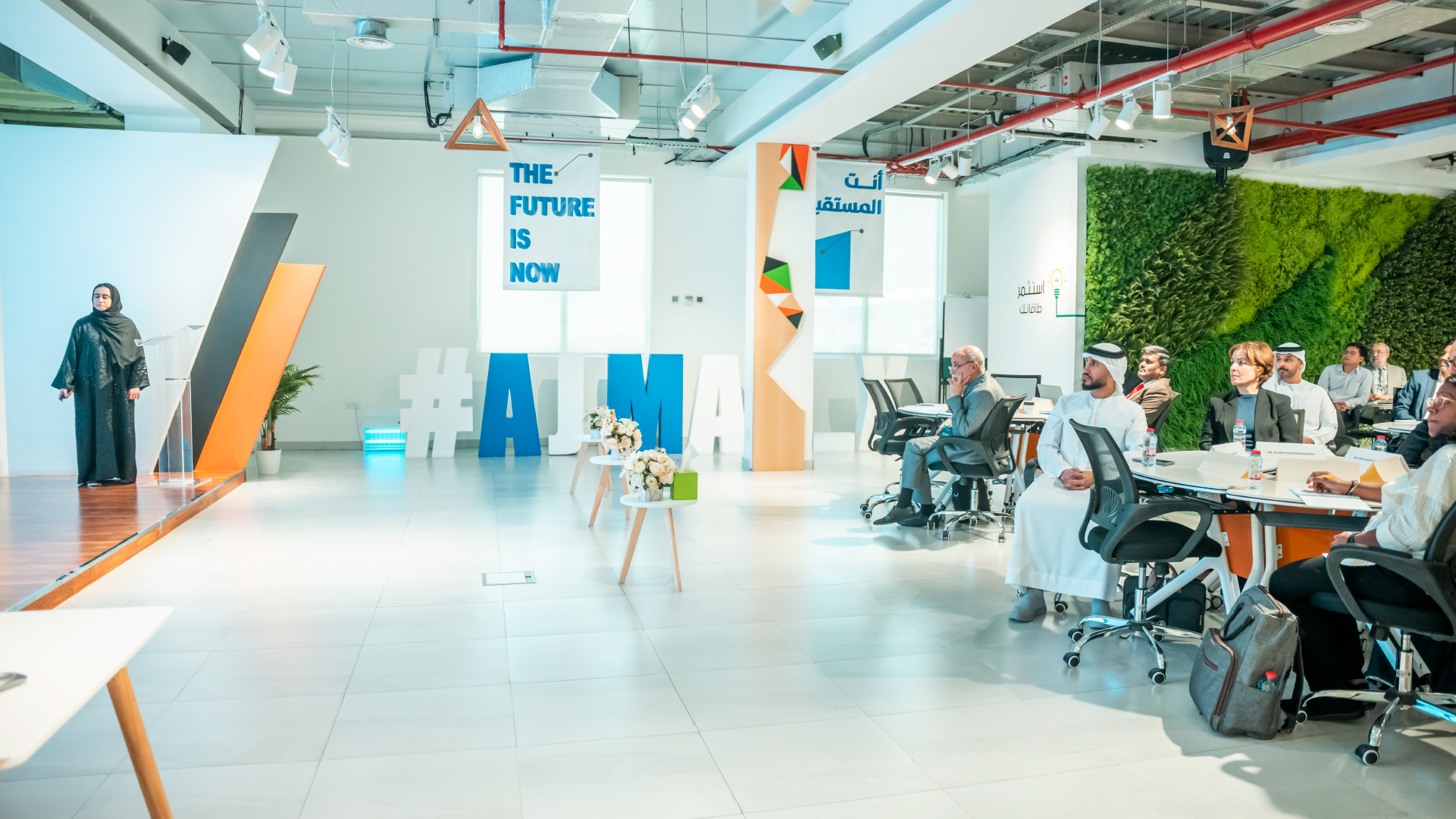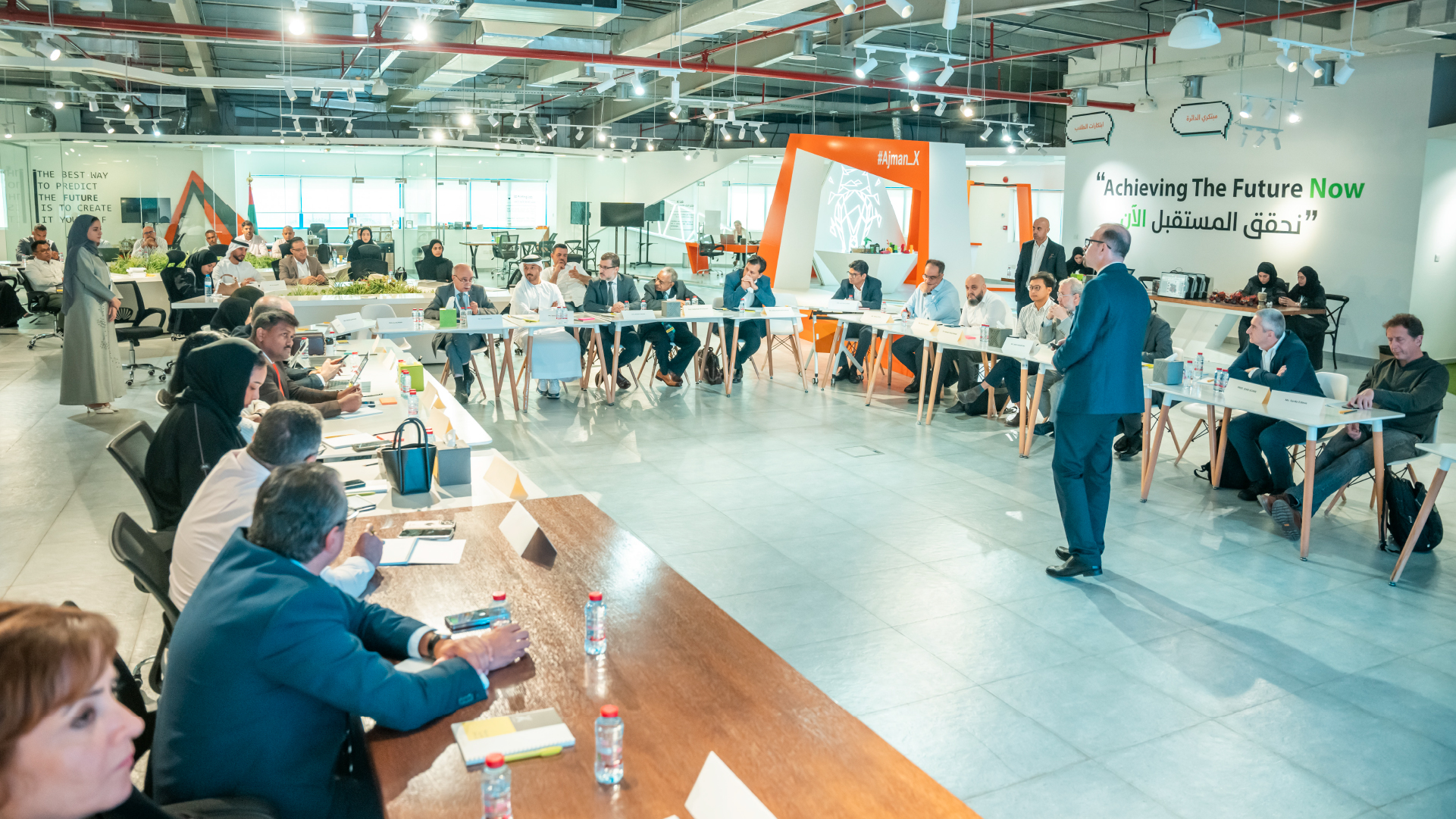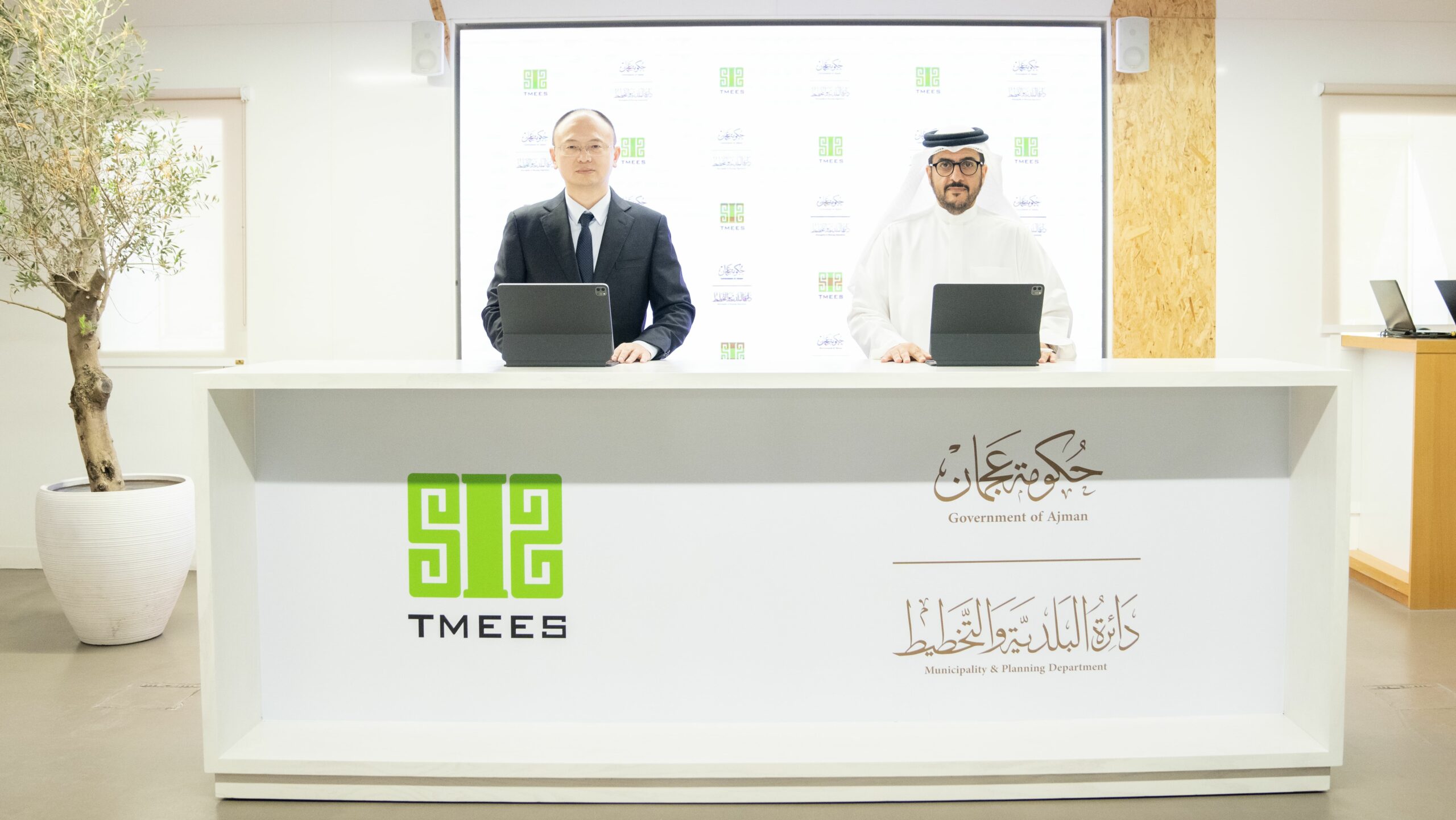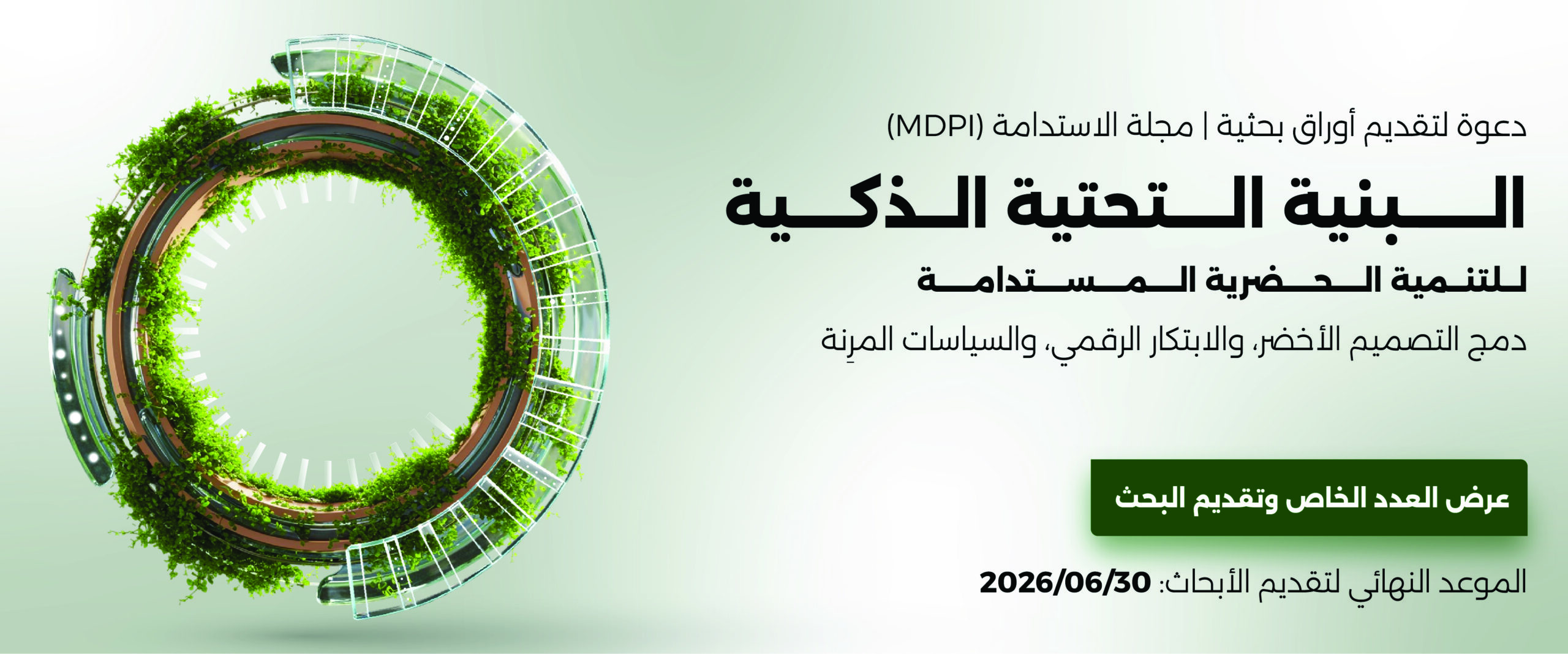اختتم مؤتمر عجمان الدولي السابع للبيئة، والذي أقيم على مدار يومين تحت شعار “مدينة محايدة مناخياً 2050″، برعاية من صاحب السمو الشيخ حميد بن راشد النعيمي، عضو المجلس الأعلى حاكم عجمان، فعالياته أمس (الأربعاء)، بإقرار 8 توصيات تدعم الجهود الدولية للوصول إلى الحياد المناخي والتمويل الأخضر للمشاريع المستدامة.
يأتي هذا فيما كرّم سعادة عبد الرحمن النعيمي، مدير عام دائرة البلدية والتخطيط في عجمان، عدداً من المدارس الفائزة في مسابقة الابتكار في الاستدامة البيئية، والتي تستهدف تشجيع الابتكار في خدمة التنمية المستدامة ومواجهة تحديات التغير المناخي، كما كرّم عدداً من المتحدثين في جلسات وفعاليات المؤتمر.
وشهد المؤتمر حضور 1500 مشارك و28 متحدثاً في الجلسات وورش العمل ممثلين عن أكثر من 15 دولة.
8 توصيات لـ”المدن المحايدة مناخياً”
وأقرّ المؤتمر 8 توصيات تدعم الجهود الدولية في الوصول إلى تشكيل المدن “صفرية الانبعاثات”، حيث تضمنت التوصية الأولى تحسين كفاءة الطاقة وتدفق حركة المرور وإدارة النفايات وتخصيص الموارد باستخدام أنظمة الطاقة الذكية التي تستفيد من تطبيقات الذكاء الاصطناعي ومصادر الطاقة المتجددة مثل الطاقة الشمسية وطاقة الرياح، فيما نصت التوصية الثانية على دمج الحفاظ على التنوع البيولوجي واستعادة النظام البيئي في التخطيط الحضري وتطوير البنية التحتية، وتنفيذ مبادئ الاقتصاد الدائري، والحد من توليد النفايات من أجل إنتاج حلول إيجابية للطبيعة.
ودعت التوصية الثالثة إلى الاستثمار في البنية التحتية القادرة على الصمود في وجه تغير المناخ، وأنظمة الإنذار المبكر، والنمذجة المناخية المتقدمة لحماية المجتمعات الضعيفة من الظواهر الجوية المتطرفة وارتفاع منسوب مياه البحر، كما نصت الرابعة على تعزيز الاندماج الاجتماعي، وتحسين مهارات القوى العاملة، وتلبية احتياجات الفئات السكانية الضعيفة من أجل ضمان الانتقال العادل والمنصف إلى مستقبل صافي انبعاثات صفرية.
أما التوصية الخامسة فدعت إلى تسهيل الوصول إلى التمويل الأخضر للمشاريع المستدامة من خلال زيادة التمويل العام والخاص للمناخ، بينما أكدت التوصية السادسة على ضرورة تعزيز التعاون الدولي من خلال تنظيم الندوات والمؤتمرات، والمشاركة في الدورات التدريبية من أجل تبادل أفضل الممارسات، وتسريع نقل التكنولوجيا، والتصدي بشكل جماعي لتحدي المناخ العالمي.
ولفتت التوصية السابعة إلى أهمية تعزيز أنماط الحياة المستدامة بشكل يشمل تقليل استهلاك الطاقة، وتبني عادات صديقة للبيئة، ودعم الأعمال المستدامة، بينما نصت التوصية الثامنة على المساعدة في تعزيز الشفافية والمساءلة من خلال ضمان أنظمة شفافة للرصد والإبلاغ والتحقق من أجل تتبع التقدم ومحاسبة أصحاب المصلحة وبناء الثقة في عملية العمل المناخي.
مسابقة الابتكار في الاستدامة البيئية
من جانبه، كرّم سعادة عبد الرحمن النعيمي، مدير عام دائرة البلدية والتخطيط في عجمان، المدارس الفائزة في مسابقة الابتكار في الاستدامة البيئية، والتي تستهدف تشجيع الابتكار في خدمة التنمية المستدامة ومواجهة تحديات التغير المناخي ودعم اهتمام طلاب المدارس في الاستدامة، ورفع الوعي البيئي لدى طلاب المدارس بأهداف الاستدامة ذات الصلة بالبيئة.
وشهدت المسابقة 126 مشاركة لنحو 350 طالباً وطالبة ممثلين عن 52 مدرسة. وتعتمد على تقديم فكرة ومشروع يخدم الاستدامة ومواجهة التغير المناخي، بحيث ترتكز فكرتها على بناء نماذج مادية أو نماذج أولية تقدم حلولاً مستدامة للمشاكل البيئية.
وتدور هذه المسابقة حول تحويل الأفكار المبتكرة إلى نماذج وظيفية ملموسة في إدارة النفايات، والحياد الكربوني، والتغير المناخي والاستدامة.
وفازت بالمركز الأول مدرسة الإمارات الوطنية بالشارقة، عن مشروع الزراعة الآلية، فيما حصل على المركز الثاني مجمع زايد التعليمي الظيت الجنوبي (الحلقتان الثانية والثالثة) عن مشروع سلة النفايات الذكية، بينما حصدت مدرسة الهجرة (الحلقتان الثانية والثالثة)، المركز الثالث عن مشروع سولار سكانر.
كما كرّم سعادة عبد الرحمن النعيمي، عدداً من المتحدثين في جلسات المؤتمر وورش العمل، موجهاً الشكر لهم على الجهد المبذول وطرح رؤى وأفكار تساهم في دعم جهود الاستدامة والتحول نحو المدن صفرية الانبعاثات؛ بما ساهم في إنجاح أهداف دورة المؤتمر لهذا العام.

